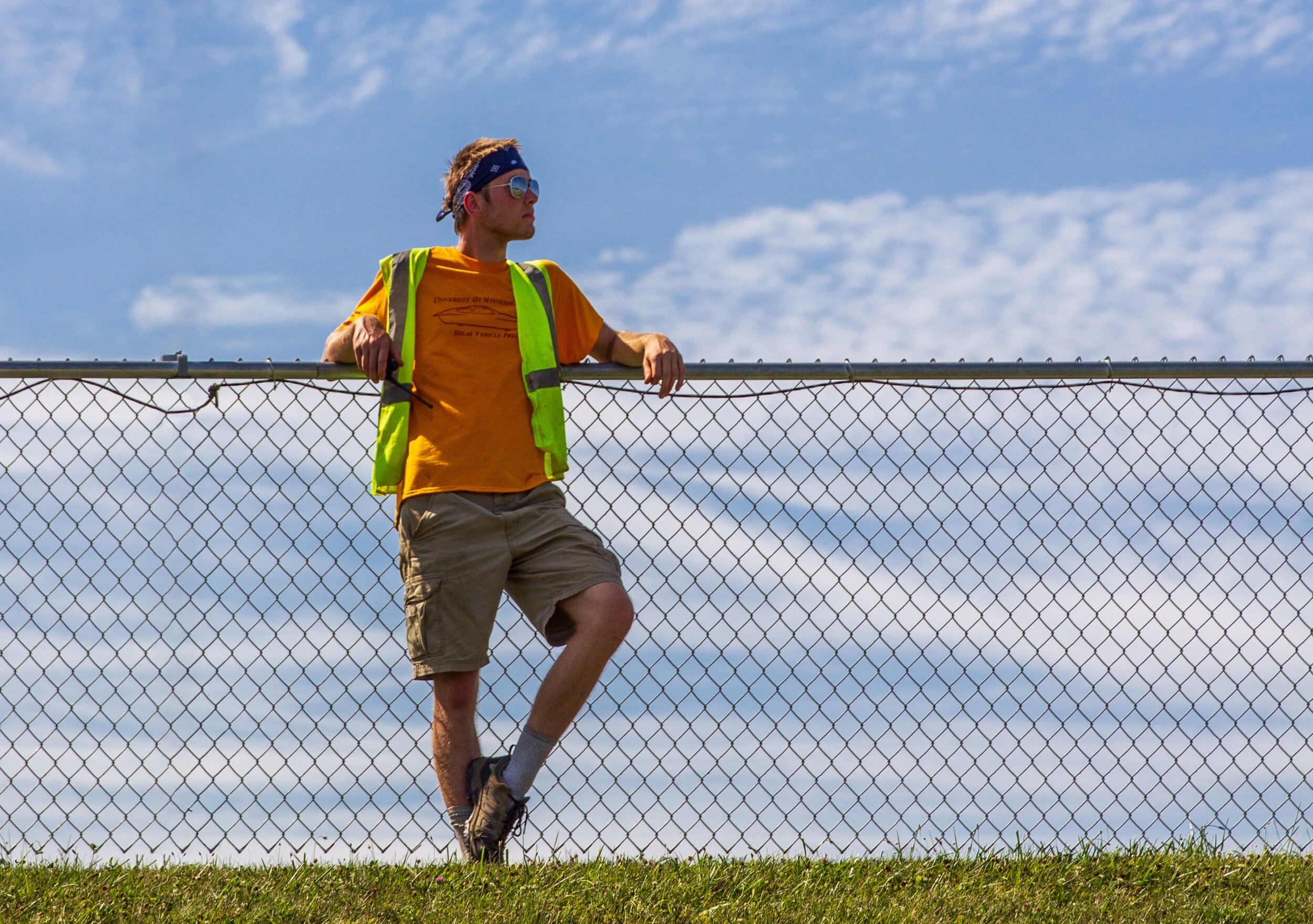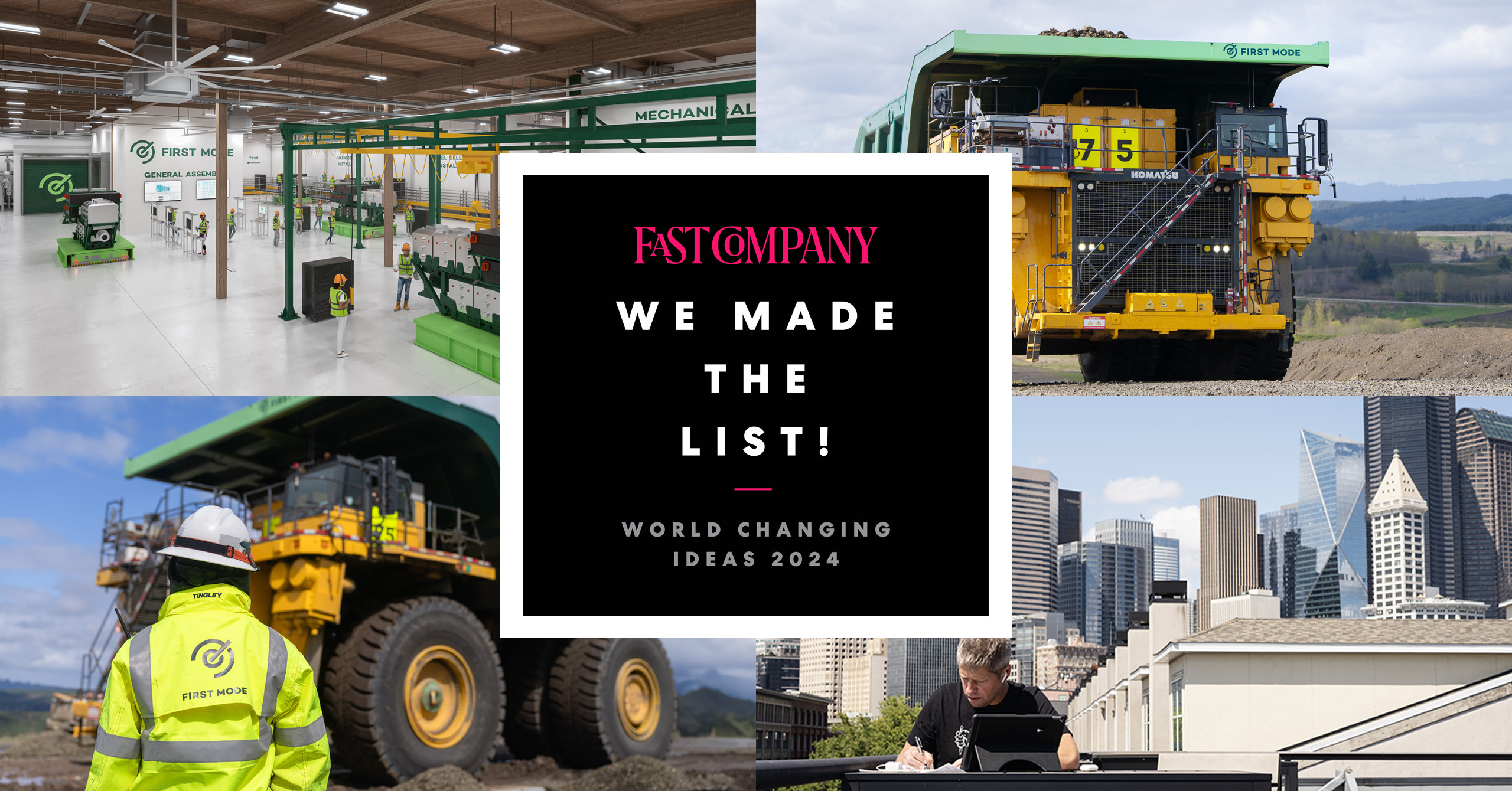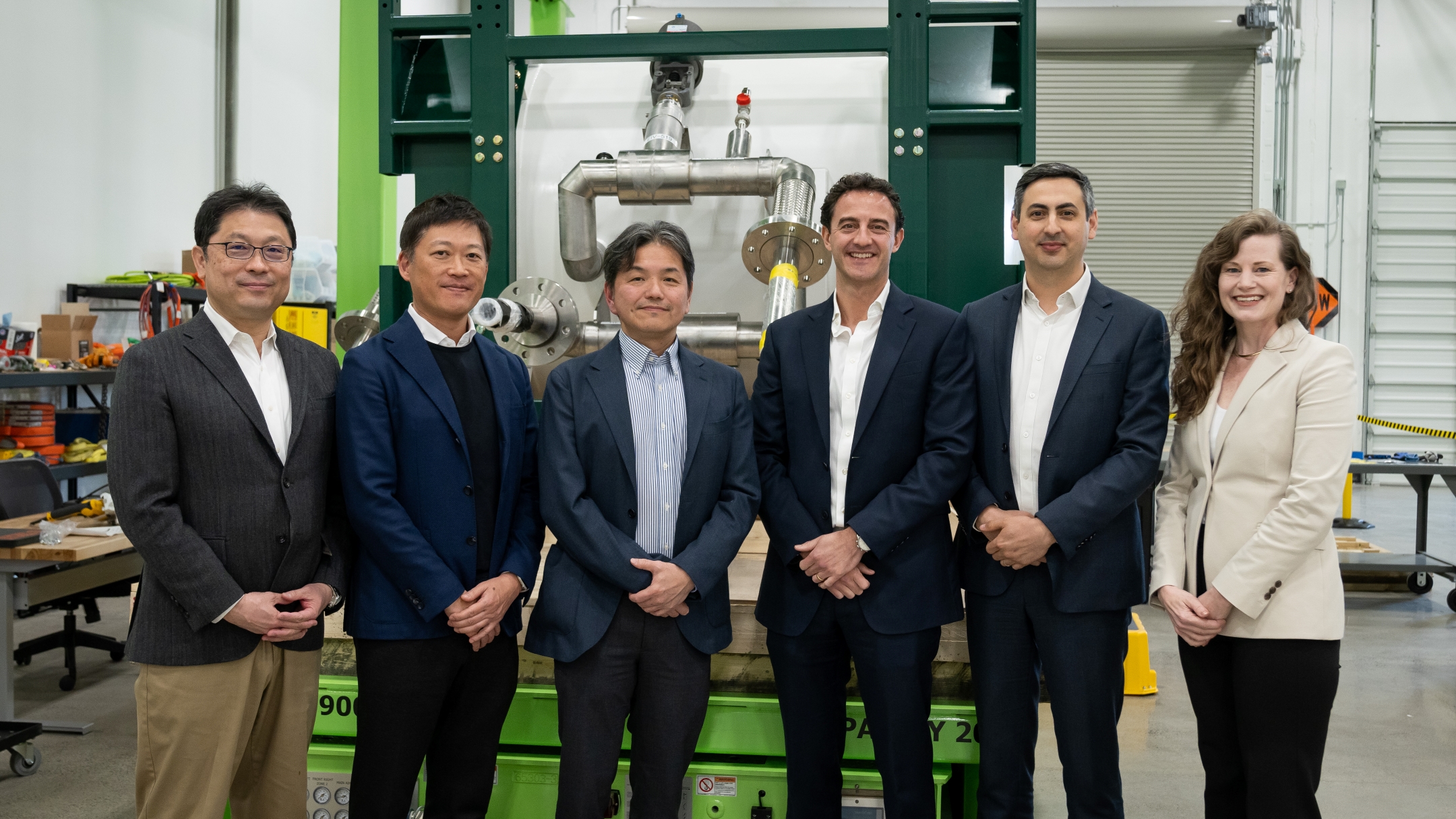Our “Meet the Team” series profiles the creative and curious people of First Mode. We are driven to find purposeful technology solutions to the world’s most important challenges. We take our work seriously but ourselves not too seriously. Want to work with us? View our open positions.
“Stay curious, stay receptive to new ideas, and be a positive influence in the lives of others.” – Spencer Berglund, First Mode Embedded Systems Engineer
What do you do at First Mode Seattle?
I am an Embedded Systems Engineer by title, but work on a wide variety of engineering, testing, and manufacturing tasks.
What drew you here originally?
I love working on challenging engineering projects with talented engineers, both of which First Mode has a lot of!
What are you working on?
I’m working on a few different projects for a hydrogen truck powertrain and the DSOC Aperture Cover for the Psyche mission spacecraft. For the powertrain, I’m developing a custom load bank that will allow us to sink the full power output of our hydrogen powertrain, as well as the High Voltage Power Distribution Unit (HVPDU) that acts as the centralized interconnect between all of our powertrain’s subsystems. For DSOC Aperture Cover, I’m helping to design Ground Support Equipment (GSE) support hardware to test and validate flight hardware.
Why are these projects important?
At a high level, First Mode’s work with Anglo American is an important first step towards developing high-power mobile fuel cell systems that could quickly replace diesel in many industrial applications, moving mining and other industries towards a greener, carbon-neutral future. The subsystems I’m working on are critical to the powerplant’s functionality and for validating the proper operation of the powerplant before we install it on a truck.
What gets you out of bed in the morning?
Honestly, sunlight. I have a hard time getting up in the winter =]
How did your passion for engineering and technology begin?

One of my earliest memories is drilling holes in stuff with my Dad. I was lucky to grow up in a supportive environment that catalyzed the transformation of my innate curiosity into a passion for science and engineering at a young age. By the time I was 7, I already had a collection of circuit boards from devices I had torn apart that I would just inspect for hours for fun, and my birthday cake when I turned 9 was circuit board themed with frosting traces, gumdrop capacitors, tootsie roll axial components, and chocolate ICs.
Did you have a hero/heroine figure growing up?
Albert Einstein and Nikola Tesla were both inspirational figures for me from a young age, but I hold a lot of admiration for a very broad cast of historical figures in science and engineering history.
Do you have a mantra, a motto, or a mission statement?
Stay curious, stay receptive to new ideas, and be a positive influence in the lives of others.
What is great about electrical engineering?
Of all the engineering disciplines, I feel like electrical engineering encompasses the most diverse breadth of sub-disciplines. You’ve got embedded systems, digital logic, analog circuits, power electronics, RF design, PCB layout, VLSI design, electromechanical systems like motors, and more. Each requires a unique skillset to be good at, but also can be tied back to the same set of physics fundamentals.
What do you think is the most significant discovery or human endeavor of the last few years?
There are so many that it seems unfair to name just one, but if I had to choose, I’d probably say SpaceX’s successful development of reusable orbital rocket boosters is pretty high up on the list.
Why does it matter that we keep inventing, testing, creating?
Not to get too existential, but I do strongly believe that humanity as a collective is racing very quickly towards either self-destruction or interplanetary colonization, and subsequent expansion throughout our solar system and local star system. Nothing will stop the progression of technological advancement at this stage, so it’s essential that we guide it in the right direction. The best we can do right now as individuals is choose to work on developing technologies that improve our future prospects as a species and gain a solid understanding of more threatening technologies so that we’re prepared to deal with them before they deal with us.
What does your typical day look like?
It depends a lot on what stage of a project I’m working on. It could be designing a system at the schematic level, PCB layout, poking at circuits in the lab, writing code, documenting test activities, and often interviewing candidates as we continue to grow our team.
What are your hobbies and interests outside of work?

I like to unicycle, play Super Smash Bros. Melee, travel, and explore urban and natural landscapes. I also really enjoy meeting strangers and hearing their stories to gain a broader perspective.
Have you learned anything great in the last year?
Rules of thumb and engineering best-practices are useful and should be leveraged during the design process, but there’s no replacement for calling back to engineering fundamentals at every stage of development.




